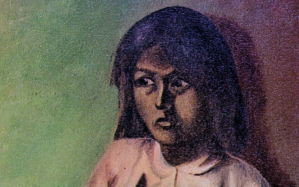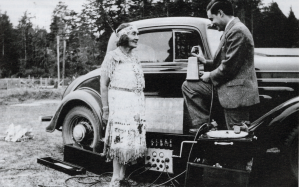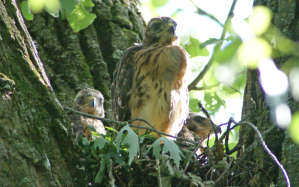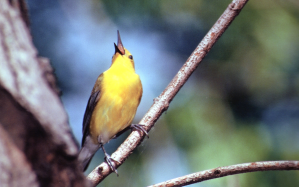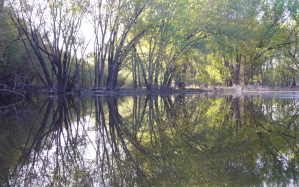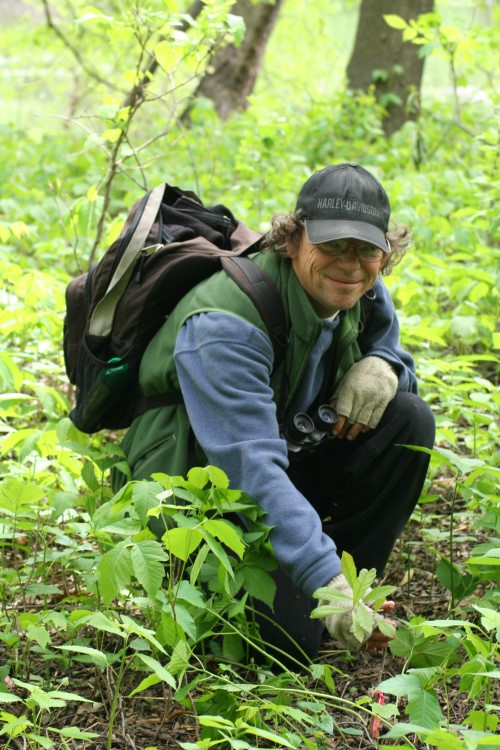SPIRIT MOON
(Copyright 2023 by Richie Swanson)
No matter I told Spirit Moon to mind her condition, she sweated like demons every morning, squatting her swollen womb before her fire in the summer kitchen behind our cabin. She shoveled hot-pulsing rocks into a kettle, boiled parsnip roots and lugged her potion in a bladder bag up the long, steep coulee to Rattling Wind’s village to treat her mother’s fever. I showed her a lancet once, told her I’d bleed Heron Quill, and she laid her hand on her heart to tell me I lacked one.
My Dakota wife could push a torrent against white ways—no words needed, though she’d learned English passable from her father, Chief Rattling Wind. She’d just tamp her breath low and murmur–her brown eyes muddy-dark like the spring flood of the Mississippi, so secret-deep they showed no regard for the notions they swept aside.
The morning we’d found Heron Quill sweating and shivering in her bark house, I showed Spirit Moon a jar of quinine, the fever treatment all fur traders used in 1820. But she stared at my cedar stethoscope instead, as if it held some sacred power like the medicine stone Heron Quill wore around her neck. I told Spirit Moon to count heartbeats through the stethoscope, and she’d lowered her ear and listened as close as to grass rustling in Sac or Ojibwa country. I commanded respect, you see–was the only white trader on the river between Forts St. Anthony and Crawford. I’d arrived a year ago at Rattling Wind’s Prairie on the Fifth Infantry’s keelboat, and was left alone with a handful of boatmen, Canadian half-breeds. Now I had me a stockade of buildings and a-thousand dollar gain from the first fur hunt Rattling Wind’s band had traded exclusive to Americans, not Brits, anymore.
I owed Spirit Moon a mite, I know it. She presided with Rattling Wind and me at the trading table, and when any brave’s squaw brought in a pelt with flesh left on it, she flared a nostril haughty, plainly peeved that such lazy work would invite worms to eat furs on the way to market. She dashed turpentine deliberate on such pelts, making sure squaws saw, and she fingered the skins somber-quiet, testing their tanning, and copied my records in her own ledger, her round hand good as a schoolmarm’s.
A chief’s daughter, granddaughter, great-granddaughter. As supple, slender and quick-eyed as an antelope. But the evening she returned with the stethoscope, she gazed blotted and glassy, shuffling heavy into the cabin. “Heron Quill’s heart stopped,” she said. “She died and came back. The Indian spirits talked to her.”
Spirit Moon laid the stethoscope in my field kit and slept cavern-deep on our feather bed. She woke at midnight, muttering, “He sees the flood! He sees the flood!” She sounded feverish, but her brow was cool, not clammy. She’d never talked in her sleep before, and so it struck me that Noah had visited her and given her a sign about our child, on account we’d conceived in mortal sin. And she’d said he. So, I figured Noah had warned her that I saw the flood a-coming—because I’d married her last October in a savage rite, a Dakota ceremony, and I hadn’t brought her clear down to St. Louis to a preacher.
Or maybe Noah warned Spirit Moon that Heron Quill was dying, taking all her Indian sins with her?
I didn’t check on my mother-in-law in the morning. Dakota custom forbid it, she was my “Grand Avoidance.” I couldn’t talk close or even joke with her—she was only twice Spirit Moon’s seventeen years, and pretty as a songbird, you see.
But I did put a jar of quinine in Spirit Moon’s hand, and I opened Doctor Thomas’ Medical Manual important-like. “Two tablets at dawn, noon and dusk. You touch her, wash yourself good with vinegar. She gets bound up, purge her with calomel.” Mercury. “She turns yellow and vomits black bile, she’s dying. You keep away from it.”
Spirit Moon said naught and carried the quinine and her parsnip potion out the stockade and up the trail. I expected her back before the gloaming, but Rattling Wind came and hastened me to the riverbank: a gaunt old Indian with long silver hair lay in a canoe, a blood-soaked duck wing serving as a bandage on his arm.
“Stunning Cloud, Spirit Moon’s uncle,” said Rattling Wind.
The old brave and Rattling Wind had fought with Tecumseh and the Brits against General Harrison when I was just a toddling boy at my folks’ homestead south of Buffalo, New York. Now he had fired at a she-bear and cubs, and a ball had flown back from rocks into his elbow, shattering bone near to his shoulder, glancing into his side and lodging itself above his stomach, just inside the skin. We carried him into my cabin and laid him on my trading counter, and I tied off veins. I needled out the ball, stanched his side and stomach. I checked his pulse and raised his head, and Rattling Wind gave him a pipe to smoke and two full gills of brandy, un-watered. “He knows?” I said.
“He saw white doctors cut off arms and legs at Proctor’s fort,” said Rattling Wind. “And at Fallen Timbers and Tippecanoe.”
I tied Stunning Cloud’s hands and feet to the counter and showed him my blade of straight-edged steel, and Rattling Wind laid a hand upon Stunning Cloud’s brow. I strapped his head down. Drums erupted outside, medicine shrieks. I gripped my knife, and the beats and cries thrummed through my hand, sounding like an army full of Indian doctors–Spirit Moon and Rattling Wind’s cousins, uncles, brothers—the Dakota had so many words for different kinds of kin I couldn’t keep track. The drummers sang to a water spirit, a kind of horned serpent that had dreamt secret treatments into the Dakota during their Creation—tinctures and potions, chants and prayers, cures inside shells, bones, feathers and roots—all hoarded special in beaded otter skins–medicine sacks, said Spirit Moon. I couldn’t reckon it, but I lanced through Stunning Cloud’s skin, felt his eyes on mine like he thought the drumming and singing swarmed deep inside me. His gaze begged trust up into mine, though I’d never amputated on nothing but a cadaver. I sawed, splintered through bone, scraped the counter, and he neither grunted nor yelped. His blood ran black in the dark, and Rattling Wind moved the lantern closer. I pulled flaps of skin tight over the stump. I stitched silver sutures fast as I dared, and Spirit Moon shuffled beside me, just a shadow speaking icy. “Medicine Trader cuts an Indian, he poisons him.”
I didn’t know how much she’d watched. I scolded, “Spirit Moon could have held another lantern.”
“Medicine Trader cuts an Indian, he makes a war beneath his skin.”
I put my knife and nippers before her. “Boil water. Clean them.”
She grasped the instruments, steaming. She flew out into the drumming and night air, and Rattling Wind and I lowered Stunning Cloud onto a blanket on the floor. He slept spent, without moaning, and by morning was the whitest-palest Indian I’d ever seen, his skin gossamer-thin on his bones, his stump swelled and bruised, my sutures clean-smelling and leaking only clear-running blood, no pus. He didn’t wake, and for all I knew he was halfway to the Dakota’s Spirit Road–the Glittering Track, the Milky Way.
Jingling Hare brought in cottonwood poles. She was Rattling Wind’s second wife, another Grand Avoidance I couldn’t talk with or look at, just five years older than Spirit Moon, prettier than Heron Quill, her eyes brighter for the chief. She and Spirit Moon fixed the poles beneath the blanket, carried Stunning Cloud out to a travois, and Spirit Moon glared me quiet, tying lines to a pony, jarring her womb careless against the poles. If Stunning Cloud died, I knew her people would blame my medicine, so I pointed at the bunkhouse. “I’ll keep him there.”
No matter, you see. Spirit Moon led the pony and travois through the post’s gate, her bladder of parsnip in one hand, about a-hundred pounds of pigeon squabs on her back. I prayed for my child inside her—no matter, I say. The giant June sun rose fiery-orange in a blue-gray heat-haze the next day, and Spirit Moon and Jingling Hare went after swamp roots with other squaws, paddling to bottoms that reeked of miasma–the river low and sultry, her shores scummy and green. The squaws returned with their Indian potatoes, and Spirit Moon shaved sassafras bark frantic into a bladder of steaming water and urged me out the gate—Jingling Hare lay in the shade of pickets, sweating buckets, hands flopping beside hips, eyes rolling up into sockets. “He sees the flood!” she muttered. “He sees the flood!”
Rattling Wind helped carry her into the post and beneath a bower, then clutched his head. He collapsed beside her, and Antoine my clerk brought me quinine and wobbled down too, his face ghostly and sweaty—the summer fever clearly upon us. The three drank Spirit Moon’s sassafras and gulped quinine tablets and slept through the afternoon heat. I roused them for another dose, drew out my lancet, and Spirit Moon stood like a big boss-buck with a full rack, arching her swollen womb. I put down my lancet, aggrieved. I’d read the facts from Doctor Thomas over and again to her, had taught her plain that miasma caused fever, and bleeding cleansed the patient.
I called upon Christ to aid my medicine–in the name of my father and mother, both dead of the croup on the same day. I promised God that I had not come to the wilderness to be lured by the devil or to fail the Holy Father’s design or President Monroe’s empire. I kindled a fire. I held a cup of glass in tongs in flames until it glowed red-hot, and I started with Antoine, coaxing the red-hot cup onto his arm. His skin crackled and smoked. His eyelids fluttered, his arm stayed limp. He did not wake, remained as dull as Stunning Cloud. His blister bubbled up and leaked miasma’s poison just as Doctor Thomas said.
Spirit Moon and the other squaws sucked bullets and daggers deep into mud-dark eyes. They hoisted Rattling Wind and Jingling Hare on litters and carried them up to the village in the sweltering heat.
* * *
I moved Antoine into a tent, so he could sleep that night free of mosquitoes. I had my strongest boatman stand guard, keeping the unstricken from him, but Sings-the-corn moaned at the door-flap, a kind of second sister to Spirit Moon, related by marriage and clan. Her teeth chattered as if she were freezing, her skin was aflame. “Ho, master!” Pierre my devant called out, his Indian wife sick too. And then a steady stream came, some with swollen yellow eyes, others with muscles and bowels rigid as rocks. I bled them all except Pierre’s boy, who leaked blood from mouth and nose. Doomed, dead by dawn, while the scents of Sioux remedies, cedar and prairie sage, drifted down from the coulee, the Indians heating themselves lobster-red in sweat lodges.
Bounding Leaf came running to the cabin—Spirit Moon’s brother, Heron Quill’s lad—gangly and long-limbed. He raised an empty quinine jar, and I filled it, bundled compresses and started to the village with him. “No, Spirit Moon say’ she does not want Trader Doctor,” said Bounding Leaf. “He stay away from Indians dying.”
“Stunning Cloud?”
“He eat corn, fish. He stand.”
“Rattling Wind?”
“He dreamt dust on Pine River.” Buffalo in sinkhole country, where they’d be driven into a pit. “Sings-the-thunder sings over him. Oak Woman sings over Jingling Hare, over Heron Quill.” Bounding Leaf turned dreary, naming relations bound for burial scaffolds. “Fox Eye, Iron Bear, Walks-the-day, Lance Woman, Gray Fish…”
“Spirit Moon gave them quinine?”
Bounding Leaf gawked, appeared not to know. He flew off with the jar, and I tended the stricken at the post while my Canadians built coffins. Spirit Moon neither came home nor sent word. Three more nights, and I decided a white trader doctor couldn’t let his Indian wife put his child in fever’s way, or be run by her notions, not here where the river’s furs could make whites rich. I gave her until sunrise. Watched from the stockade’s tower at dawn, my fist aching and tensing, the courage building in the flat of my hand.
Mist floated gray out on the blue-black river, vapors rising like the dying had sunk beneath the dark-glossy sheen and were blowing their last breaths, as if the fever born of the sultry river were also carried away by her. The water hissed and murmured, and slaps rang from the bank, blows against flesh. I stared through the dark across the old hayfield at our old Allegheny farm—a scurry somewhere, a stumble. Pa huffed and grunted, Effie whimpered. He had her rough by the arm, and I kept watching—I was nine, already able to keep as still as Pa when he stalked game.
Pa kicked Effie’s tailbone, and she pitched forward in her shift, her womb a melon, her black skin a blur. We hadn’t owned her like down south. Effie was our help, not our servant. She stayed in a shack on our land and scrubbed clothes and chopped wood amenable enough. She limped hasty, flew forward from Pa’s boot again. He tossed her bundle down in the old skiff. He raised her two-handed and shook her. He drove a knee between her legs–the growth there a cancer, a sickness as catching as the pox, said Ma. The knee kept on, and Effie thumped down into the skiff, and I ran back to the privy and sat on the stink-hole, listening through the dung-taste. Pa splashed in the river, pushing the skiff. Effie’d be gone for good, and I wondered what she’d stolen, and if a Negro woman’s insides were the same as Ma’s?
The question ate at me, and whenever I went to my uncle’s store, I looked and looked at his medical books, puzzling.
* * *
“The white pills!” Rattling Wind smiled sudden from below the tower, holding a dead turkey by its feet, and Spirit Moon looked up with a strange-hideous face, blackened in the milky gray air, her hair hacked in grief. I shed my memory, do tell. Rattling Wind carried his quarry limber to the cookhouse, and Spirit Moon waddled to the cabin flat-footed and pulled a beaded pouch from a wall. She fetched out a flint, aiming to cut her flesh, scarify her shins to mourn her dead. “Gray Fish,” she said. “Day Woman, He-walks-the-sun, their little one…”
I puzzled different now, figuring how to free her of the devil. “I’ve seen those cuts get foul.” I took the flint, she resisted naught. “You mustn’t harm our child. The Lord doesn’t want you keening and wailing like some animal.” I raised my pocket bible. “You stay down at the post, we’ll recite in the shade, you hear?”
She growled in her throat, looked loathsome at me. She waddled off with a hatchet and came back in the broiling heat of noon, carrying a basket of shavings from the insides of wild plum and cherry trees. She boiled the shavings with chunks of pine, poured steaming-foaming water from her kettle and pounded the concoction into a woody mush as it cooled. She fixed a pack-strap to the kettle, set about hoisting it to her back, and I grabbed the handle and carried the kettle up the coulee, no matter that Antoine, Pierre and others needed to be dosed, swabbed and bled anew.
Indians lay writhing and dull beside the creek, smelling of the reaper. Moans and rants came from inside bark houses and sweat lodges, and the reek of vomit swamped the cedar-and-sage scents. We came to Heron Quill’s house, and the sweet stink of gangrene stopped me short. Stunning Cloud lay outside, torpid as a corpse again, his sweaty mass of silver hair dwarfing his shrunken face, and Heron Quill knelt over him, working a flint knife at his bloated stump. She loosened rotten flesh like fat from bear meat, rose lithe as willow, trudged weak into the house.
I cursed her wickedness, her loyalty to backwardness. She clung to her Avoidance, paying my white medicine no heed, though I’d cured Rattling Wind, hadn’t I? Spirit Moon pulled the bucket from my grasp. She knelt and poured the mash ever-so-gentle on the stump, hoping the primitive poultice held a miracle. I could remove no more of the stump anyhow, he’d die. I made for home, praying for his soul.
* * *
Rattling Wind brought me to the bank in the mid of night, while grief-wails sailed eerie from the coulee and out across the Mississippi’s dark muggy hiss, and echoed from her palisades, and swirled as if trapped inside her valley.
“My son must pray and receive my gift in the Dakota way,” he said.
We settled ourselves into a batard and paddled against the inky current with his elders–Eagle Bone, Shakes-the-ground, Big Medicine, He-sees-buffalo, Crooked Eyes, Sings-the-thunder. We turned into a broad-mouthed creek and stopped at a cliff that towered yellow in the grape-colored dawn. The elders got out, vanished sidewise into the rock. Rattling Wind nudged me after them, and I wiggled into a crevice and reached up into a raggedy hole, edges slippery with rock-dust. The Indians scuttled through fissures, moving light as spiders, and Rattling Wind braced and pushed me from below. We gained a ledge, an overhang, and Rattling Wind packed red willow shavings into his pipe. Everyone smoked in grainy air, and Rattling Wind laid a new pipe before me–its long stem was wrapped with a mallard skin that sparkled with beads and quillwork, and the bowl felt smooth as ice, carved from a powdery stone the Sioux had sought for ages, hundreds of miles west.
“The people once fought over medicine plants,” said Rattling Wind. “They would not share them. Uŋktehis washed those people away.” Water spirits. “The blood of those Dakota lost became the red stone of the sacred quarry, the stone of the pipe, so the Dakota do not forget.” The Flood, their Bible times.
The elders spoke, Rattling Wind translated. He talked like nothing had ever been as real or true. Water spirits turned claws of eagles and panthers into medicine shells and medicine power. Showed the early Indians how to restore the sick, to become Medicine People. Gave the Medicine People the stories of roots, bark, plants and seeds. Told animals how to answer prayers and bring cures in dreams to Medicine People.
“Rattling Wind sees sprouts grow green in his son,” said Rattling Wind, “Uŋktehis hairs.” Herbs and songs and powers. “A man has Uŋktehis medicine, he cannot turn from it! He must give it to his relations, his people!”
I smoked and passed my pipe to show that I’d speak true, but I knew the Lord was troubled for my soul–I’d begat a child and would lead it into Indian, not Christian, ways. I said naught, neither yea nor nay, and then the sun rose, winking a long ways off above the Mississippi, and a water-spirit man glowed heart-purple behind us, painted on rock, circle-eyes blazing gold, horns on his head, lizard-scales on his chest, and limbs like turkey tracks popped open in primal jubilation.
We climbed back down to the batard, and I thanked God that the serpent-man hadn’t sprung from the wall, and also for the sudden fresh breeze, tasting cool, free of miasma. It hurried us home past cottonwoods crowning yellow, and when I saw smoke behind the summer kitchen, a notion seized me, that Spirit Moon lay dying by her kettle, my punishment for praying with her people.
I found her sitting heavy beside a dwindled flame, gazing at twigs a-soaking in elk broth in a turtle-shell bowl, her legs tucked awkward beneath her weight. “Spirit Moon beaded my pipe beautiful?” I asked, and she nodded humble, would never boast of it. She glanced up slow, the same as the first time I’d seen her, a-lying on an island-shore in fog, her ankle bleeding from a rattlesnake bite. The army’s keelboat had run aground, and we’d found Rattling Wind’s party by happenstance, and Heron Quill had sucked the fang-marks and spat blood, and Spirit Moon had gazed up placid, her eyes doe-like, almond-shaped, somehow serene.
Now she saw me a-staring at the twigs and knew the question inside me. “No, Spirit Moon does not soak the twigs because she cannot eat, it is Stunning Cloud,” she said.
And sure enough he stood outside the gate the next morning, his smile sly and thankful, two white braids tightly twined, his only hand fiddling with a stained twig while a pet fox sniffed at it. He poked the twig cocksure against his stump, tapped the shotgun that leaned against his hip, and Heron Quill and Jingling Hare peered a little wayward at him, their gazes twinkling copper fires, their fevers cured complete.
“My son will see that Stunning Cloud still hunts,” said Rattling Wind.
Heron Quill and Jingling Hare readied the batard, it rocked as Spirit Moon stepped in. Squaws paddled, we men watched geese in the sky. Heron Quill landed us at a shore of wild rice, and Spirit Moon waded nigh to her womb and pushed stubborn against stalks, hell-bent on tying the grain in bundles with the other squaws. I left her reluctant and crept through woods with Stunning Cloud and Rattling Wind, and we lay hidden behind a downfall. Stunning Cloud tossed a stained twig onto a sandy shore, and his pet leapt to it like a circus fox. It sniffed and bit the twig. It took it in its teeth and pawed the sand, starting a hole, and Rattling Wind tossed a second twig one way, and Stunning Cloud, another. That fox waltzed to each, and Ma and Pa Goose floated out from reeds. They give the fox what-for, honking, and the fox sat on its rump, sniffing and perking its ears innocent. Stunning Cloud cradled his gun’s stock against his shoulder, its barrel across the log, and a whole nation of geese slipped from the reeds, pumping heads, hissing and clamoring so close I saw the pink tongues. I took aim too, and the geese exploded upward. We saved our powder, a squaw was yelping. Spirit Moon. I hastened through the woods to the rice, and Jingling Hare met me, raising a stick, giving me the evil eye. Get away, Medicine Trader! Heron Quill does not need you!
I glimpsed Spirit Moon bent over, gripping a pair of wooden posts, rocking and panting. Heron Quill knelt and steadied the posts, and Jingling Hare flustered at Spirit Moon’s side. I retreated a little, jittering, and Heron Quill and Jingling Hare draped robes all around her.
Rattling Wind slid beside me, and I took his pipe, but squaws slipped robes beneath Spirit Moon, and I forgot to smoke. Spirit Moon moaned, whistling wind. “She bites driftwood between her teeth,” said Rattling Wind, “as did Heron Quill when she bore her.”
Splashes slapped loud a long, long time, and Heron Quill spoke endless orders in Dakota. An aching silence reigned behind robes, and then Heron Quill and Jingling Hare fussed, dipping lily leaves, wiping something. The tent of robes collapsed. Squaws laid Spirit Moon in the batard, a strip of buckskin wrapped around her womb, her brown cheeks suffused pink, eyes madly roaming.
Heron Quill lowered a bundle into her hands, and a tiny head poked out. Eyes puffy, a pug-face ruddy and brown. Black tufts of hair. A boy, William Philander Prior–first name for my father, middle for my uncle who traded dry goods back in Allegheny country.
“He-sees-the-flood,” Heron Quill spoke solemn amid the squaws. “Heron Quill dreamt his name when she died and came back.”
“Ye, He-sees-the-flood,” said Jingling Hare. “Jingling Hare dreamt his name when she died and came back.”
“Ye, He-sees-the-flood shall be beloved,” said Rattling Wind. “He will live the Dakota way.”
Back at the post Spirit Moon carried William through the gate and into the cabin, no hem or haw. She sank lithe onto our bed, replete with exhaustion, and William sucked berry juice from a bladder bag, his eyes shining like bright coals. Indians crammed into our chambers, and I touched my boy’s cheek, chin, and he slurped my knuckle, his mouth wiggling, making what Ma would have called his first try at praising life, the Lord’s creation. He coughed hearty, spitting slop, and his brown eyes deepened and smoothed as Indian after Indian laid gifts on the bed–baby moccasins, baby shirts and leggings, baby jerky, a little otter-fur blanket, and pieces of hide cut like horses, bona fide promises of ponies.
I do not say William saw particulars yet, but his gaze cast the mightiest spell I’d known, his face all brown, his tiny being bundled up all-Indian in rabbit fur. It mattered none that day. My boy had come out perfect, if not white. Spirit Moon tucked him into a cradleboard, and he settled easy beneath its quillwork of Thunder and Antelope designs, and I gave up some, at least for a time. I felt the white of my skin for the millionth time since I’d opened the post, and knew I couldn’t change and improve the Dakota by myself, I’d be trying too much too soon too far from my own people .
“Rattling Wind will thank the Great Mysterious,” said Rattling Wind. “He will give a feast in the name of He-sees-the-flood.”
“Ye!” said Stunning Cloud. “We will take buffalo on Pine River!”
“Ye!” said Rattling Wind, and he met that evening with a handful of elders who had buffalo power, and though they themselves were too old for the chase, criers shouted the next morning that the Buffalo People had spoken.
And so William only five-days-old and I joined a hunt, my boy already wielding one of his mother’s greatest powers—her people’s way of holding still, taking in the world. He suckled beneath Spirit Moon’s nursing gown, riding on a travois behind a blue pinto, and she slid him out into the prairie wind, and he gawked at little horned larks flushing, and up at billowing clouds, and his eyes pooled as if he already dreamt his world into himself. A father’s fancy, you might say. But our party did not wish to attract Sac or Ojibwa, and we made no needless sound as we went, and when William soiled himself, he alerted his mother, just changing the mood of his eyes, and she replaced the wood chips and cattail down that kept him dry, and he held the quiet he felt from her as complete as his own breath.
ACKNOWLEDGEMENTS
The story of Unktehis and the sacred quarry, p. 13-14 is adapted from Westerman, Gwen and White, Bruce. Mni Sota Makoce. The Land of the Dakota. Minnesota Historical Society Press, 2012, p. 19-21, “He Mni Can.”
The story of water spirits and Medicine People, p. 14, is adapted from Oneroad, Amos E. and Skinner, Alanson B. Being Dakota. Minnesota Historical Society Press. St. Paul, 2003, p. 188, “The Origin of the Medicine Dance.”

